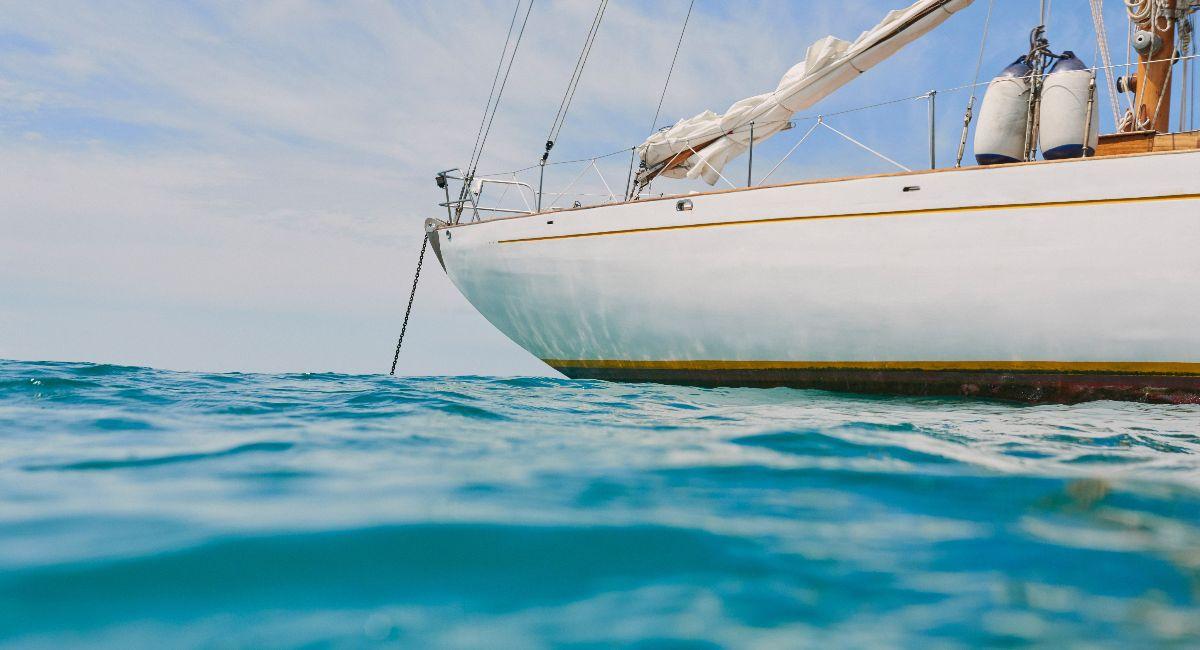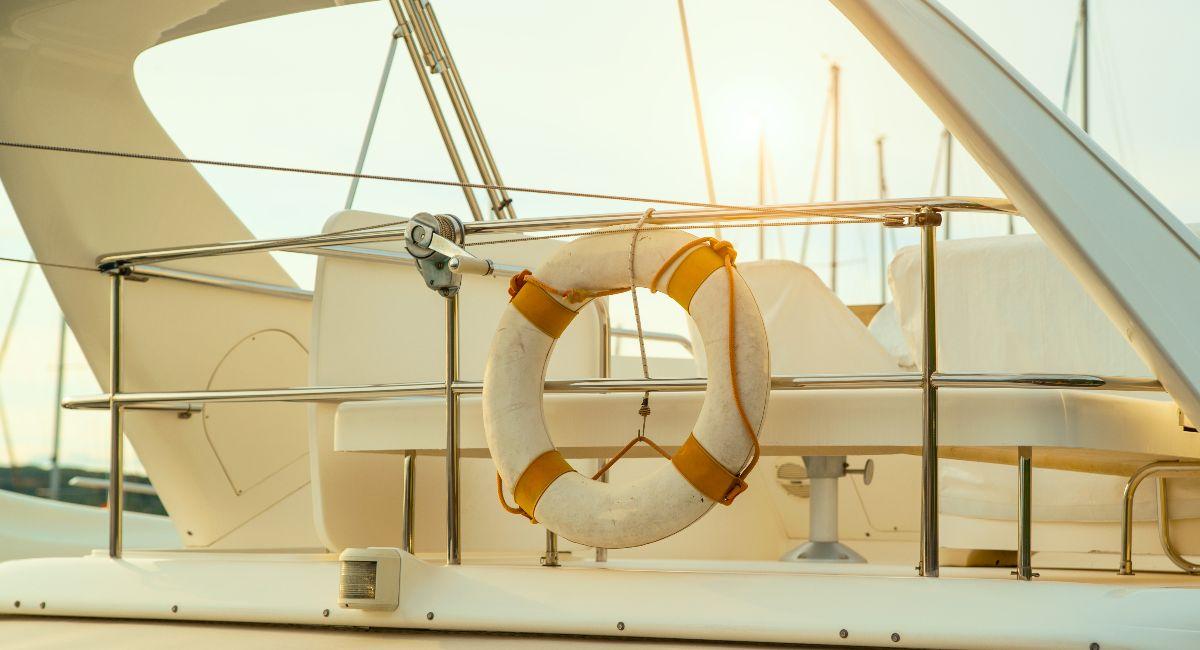Jul 25, 2025
Liability vs Comprehensive Boat Insurance: Understanding Your Risk
Liability vs Comprehensive Boat Insurance: Understanding Your Risk
Compare boat liability coverage vs comprehensive insurance. Learn what protects you from lawsuits vs what protects you from theft, storms, damage.
Insurance products
Blog Post
Education

TL;DR: Your Quick Answer
Boat liability coverage protects you from lawsuits when your vessel damages others' property or causes injuries, while comprehensive (hull) insurance protects your actual boat from theft, storms, collisions, and vandalism.
Most states require only liability insurance, but comprehensive coverage prevents devastating out-of-pocket costs when Mother Nature strikes or accidents happen. Think of liability as protecting others from you, and comprehensive as protecting you from everything else. Understanding your personal risk gap helps you choose the right protection for your specific boating lifestyle and budget.
How Does Boat Liability Coverage Protect You?
Boat liability insurance covers legal costs and damages when your vessel injures people or damages property belonging to others. This foundational coverage kicks in when you're legally responsible for accidents on the water.
Picture this: You're backing your pontoon boat away from the dock when another boater cuts too close. The wake from your sudden maneuver causes their fishing boat to crash into the marina, damaging both the dock and their hull. Without liability coverage, you'd face thousands in repair costs plus potential lawsuits from injured passengers.
Liability protection typically includes:
- Bodily injury coverage: Medical bills, lost wages, and legal fees when passengers or other boaters get hurt
- Property damage coverage: Repairs to docks, other boats, or waterfront structures you accidentally damage
- Fuel spill liability: Environmental cleanup costs if your boat leaks oil or gas
- Legal defense costs: Attorney fees and court costs, even if you're found not liable
Most insurers offer liability limits ranging from basic coverage to several million dollars per incident. Budget-savvy weekend captains often start with moderate coverage levels, while safety-first seasoned skippers typically choose higher limits for greater protection.
Wake damage and dock collision claims can result in significant repair costs and medical expenses, making adequate liability coverage essential for financial protection.
What Does Comprehensive Boat Insurance Add to Your Protection?

Comprehensive boat insurance (also called hull coverage) protects your vessel's physical value from theft, weather damage, collisions, vandalism, and mysterious disappearance. While liability protects others from you, comprehensive protects your investment from everything else. The North Carolina Department of Insurance explains that comprehensive coverage typically includes the boat itself, motors, trailers, and some onboard equipment.
This broader coverage becomes crucial when you consider common scenarios that liability won't cover:
- Storm damage: Hail, lightning, or high winds that crack your fiberglass hull
- Theft and vandalism: Stolen motors, slashed seats, or graffiti on your boat
- Collision coverage: Hitting submerged logs, rocks, or other vessels
- Fire and explosion: Engine fires or fuel-related incidents
- Sinking: Whether from hull damage or mechanical failure
Comprehensive policies typically cover your boat at "agreed value" or "actual cash value." Agreed value policies pay the full amount you and your insurer agreed upon when you bought the policy, while actual cash value factors in depreciation.
Adventure nomads who tow smaller fishing boats behind RVs especially benefit from comprehensive coverage, since their boats face unique risks during highway transport and remote launching. If you're already part of Roamly's RV community, adding boat insurance creates seamless protection for your entire adventure lifestyle without juggling multiple insurers.
Deductible considerations: Most comprehensive policies require deductibles that vary based on your boat's value and your risk tolerance. Choosing a higher deductible can reduce your annual premium while still protecting against major losses.
How Much Boat Insurance Do You Actually Need?
Your ideal coverage depends on your boat's value, how you use it, where you cruise, and your personal financial situation. First-time boat owners often struggle with this calculation, but a few key factors simplify the decision.
For smaller, less expensive boats: Basic liability plus comprehensive coverage with a moderate deductible typically provides solid protection.
For mid-range vessels: Consider increasing liability limits and adding broader comprehensive coverage that includes more scenarios like falling objects and ice damage.
For high-value boats: Safety-first seasoned skippers usually need higher liability limits, agreed value comprehensive coverage, and additional protection for expensive electronics and modifications.
Geographic risk factors also matter significantly:
- Great Lakes boaters: Need robust storm and ice damage coverage
- Coastal cruisers: Require hurricane and saltwater corrosion protection
- River and lake recreational users: Focus on collision and theft coverage
- Trailered boats: Need coverage during transport and storage
State minimum requirements vary dramatically. Only a few states, like Arkansas and Utah, have specific boat insurance requirements, while others require no boat insurance at all. Recreational vehicle insurance follows similar patterns, with requirements varying significantly by state and vehicle type. Marina financing typically requires comprehensive coverage equal to your loan amount.
What's the Real Cost Difference Between Coverage Types?
Liability-only boat insurance costs significantly less than adding comprehensive coverage, but comprehensive protection can prevent massive out-of-pocket expenses when accidents or weather events occur. The additional cost for comprehensive coverage is often modest compared to the potential financial protection it provides.
Factors that influence your premium:
- Boat age, length, and horsepower
- Your boating experience and safety course completion
- Where you store and use your vessel
- Claims history and credit score
- Chosen deductibles and coverage limits
Money-saving strategies include:
- Multi-policy discounts: Bundle with auto or RV insurance for potential savings
- Safety equipment discounts: GPS, VHF radio, and fire extinguishers often qualify
- Boating education credits: Coast Guard Auxiliary courses can reduce premiums
- Lay-up periods: Seasonal storage discounts when your boat isn't in use
Many budget-savvy weekend captains discover that comprehensive coverage costs less than one major repair, making it an easy financial decision. Just like with travel trailers and other recreational vehicles, understanding the true cost of protection versus replacement helps clarify the value proposition.
When Does Comprehensive vs Collision Boat Insurance Matter?
Collision coverage specifically protects against impacts with other objects, while comprehensive coverage covers "acts of God" and other non-collision incidents. Many insurers bundle these together in all-risk policies, but understanding the distinction helps you avoid coverage gaps.
Collision coverage handles:
- Hitting other boats, docks, or piers
- Running aground on sandbars or rocks
- Striking submerged objects like logs or debris
- Ice damage from frozen waterways
Comprehensive-only incidents include:
- Theft of your boat or equipment
- Vandalism and malicious mischief
- Fire not caused by collision
- Lightning, hail, and windstorm damage
- Falling objects like tree branches
All-risk policies combine both coverages and often include additional protection like:
- Mysterious disappearance (boat vanishes without explanation)
- Fuel contamination
- Damage from insects or animals
- Emergency towing and assistance
For adventure nomads who frequently explore new waters, all-risk coverage provides the broadest protection against unexpected hazards. Safety-first seasoned skippers with valuable vessels almost always choose comprehensive all-risk policies over basic collision-only coverage.
Ready to Cruise with Complete Confidence?
Don't let insurance confusion keep you anchored to worry. Understanding your personal risk gap between liability and comprehensive coverage helps you make smart decisions that protect your adventures without overpaying for unnecessary features.
Ready to see what full peace of mind costs? Get a liability-plus-hull quote from Roamly and discover why adventure-loving families choose comprehensive protection from insurers who understand the recreational lifestyle.
Your collision coverage would handle damage to your boat, while your liability coverage pays for any damage you cause to the uninsured vessel. However, you'd need uninsured boater coverage (available as an add-on) to cover injuries the other party causes to you or your passengers.
Most states don't require boat insurance, but many marinas and lenders do. Only a few states, like Arkansas and Utah, have specific boat insurance requirements, while others require no boat insurance at all. Even where not mandatory, liability coverage protects you from devastating lawsuit costs.
Homeowners' policies typically provide very limited coverage for small boats with smaller engines. This coverage rarely includes adequate liability protection and won't cover boats used away from your residence. Check with your homeowners' insurer about specific limits and restrictions.
Most insurers can bind coverage immediately over the phone or online, often within minutes. However, you'll need your boat's Hull Identification Number (HIN), engine details, and storage location. Some lenders require proof of insurance before finalizing boat loans.
Absolutely. Boat insurance doesn't require homeownership. Insurers care more about where you store and use your boat than your housing situation. Marina slips, dry storage, and even trailer parking at apartment complexes are all insurable.
Roamly Insurance Group, LLC ("Roamly") is a licensed general agent for affiliated and non-affiliated insurance companies. Roamly is licensed as an agency in all states in which products are offered. Roamly license numbers. Availability and qualification for coverage, terms, rates, and discounts may vary by jurisdiction. We do not in any way imply that the materials on the site or products are available in jurisdictions in which we are not licensed to do business or that we are soliciting business in any such jurisdiction. Coverage under your insurance policy is subject to the terms and conditions of that policy and is ultimately the decision of the buyer.
Policies provided by Roamly are underwritten by Spinnaker Insurance Company, Progressive Insurance Company, Safeco Insurance Company, Foremost Insurance Company, National General Insurance, Mobilitas Insurance Company, and others.
Connect
© 2026 Roamly All rights reserved.
